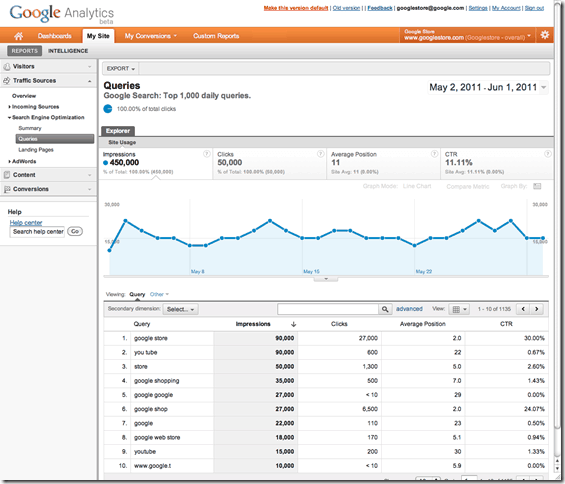(Not Provided) Showing Up In Google Analytics?

Online marketers who use Google Analytics as their reporting tool of choice may find a new addition to their keyword reports this month in the form of a “(not provided)” token. The origin of this relatively unhelpful token stems from a drastic change to the way Google tracks (or rather, chooses to not track) users signed in to their Google Account.
The Change: Encrypted Search and Referrer Data
In the past, it’s been a common characteristic of web browsers to report “referrer” data when someone navigated from one site to another. This referrer data provided valuable information on the specific sites and keywords used to find the destination site and allowed webmasters to gain a thorough understanding of their website traffic.
This is no longer the case, as Google has announced earlier last week that they will begin encrypting searches that people do by default, if logged into Google.com through a secure connection (indicated by https:// or by a lock icon) . By encrypting this information, Google effectively erases the referrer data that reveals what people searched for – with one major exception being that of referrer data associated with ads. In other words, the change will restrict the depth of information available for organic traffic data, but will have NO affect on the analysis of CPC data. A more in depth explanation was posted on Google’s blog,
When a signed-in user visits your site from an organic Google search, all web analytics services, including Google Analytics, will continue to recognize the visit as Google “organic” search, but will no longer report the query terms that the user searched on to reach your site. Keep in mind that the change will affect only a minority of your traffic. You will continue to see aggregate query data with no change, including visits from users who aren’t signed in and visits from Google “cpc.”
To help you better identify the signed in user organic search visits, we created the token “(not provided)” within Organic Search Traffic Keyword reporting. You will continue to see referrals without any change; only the queries for signed in user visits will be affected. Note that “cpc” paid search data is not affected.

Impact Estimated To be Single Digits
So what does this change mean in terms of its larger effect on your analytics? The change is expected to only impact roughly 4%-9% of total searches performed on Google. However, this still reflects a significant loss for site owners, who rely on referrer data to understand how their sites are found on Google.
Not only is keyword analysis made more difficult, but landing page analysis will also be negatively affected. Because site owners lose the ability to see the specific keywords that resulted in site visits from Google Encrypted searches, they also lose the ability to see what pages those visitors viewed and which specific page they initially landed on.
Webmaster Tools: A Viable Alternative?
Google was quick to point out in their blog post that some of the referrer data that was lost as a result of the change will still be made available to site owners via Google Webmaster Tools.

Google Webmaster Tools offers up the top 1,000 queries that a site appeared for at Google, however, it still lacks the detail that Google Analytics offered. The obvious disconnect being that search activity is not tied to visitor activity. Although the top 1,000 queries are visible, just as with Google Analytics, site owners are unable to see what their visitors have done (ie. What pages they’ve visited) on site after entering.
As if anticipating that webmasters would be furious after this announcement, Google has made an effort to increase the integration of its two products. Webmasters now have the option to integrate Google Webmaster Tools with Google Analytics to make this information more accessible.
Your Private Information is Important to Protect, Except from Advertisers
As mentioned previously, referrer data will ONLY be blocked from organic traffic, which means that advertisers who use Google Adwords will be relatively unaffected by the change. Any visit that results from a Google ad will still transfer the valuable referrer data, allowing advertisers to view the keyword responsible for the visit and analyze other on-site activity.
While advertisers are grateful to still have this information available, I can’t help but feel that this preferential treatment towards advertisers sends a mixed message to the public. It’s as if Google is saying, “Your online privacy is important to us, except when it involves our advertisers.”
The whole purpose of implementing encrypted search was to make private information more secure. The changes have in essence done so, but advertisers that help pad Google’s bottom line are granted immunity.
The truth of the matter is online privacy is a slippery slope for online marketers. The more secure the Internet becomes the less data online marketers will have at their disposal to make educated decisions. In the long run, it’s probably a good thing for everyone, but I suspect that those who rely on income from the Internet to make a decent living won’t go down without a fight.




